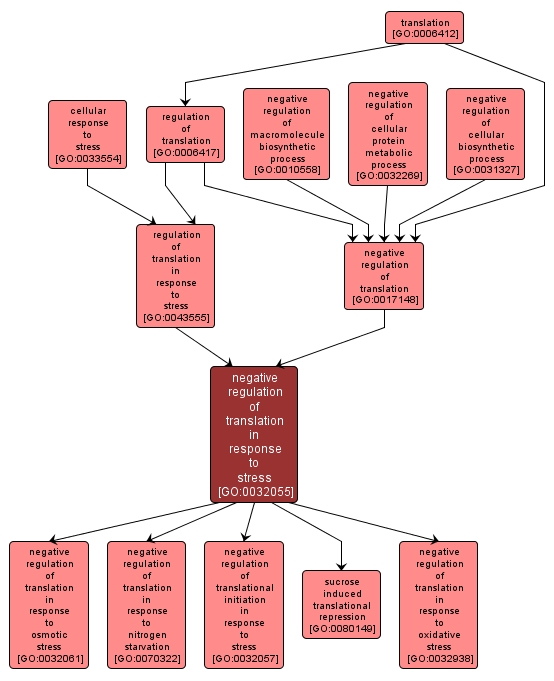GO TERM SUMMARY
|
| Name: |
negative regulation of translation in response to stress |
| Acc: |
GO:0032055 |
| Aspect: |
Biological Process |
| Desc: |
Any process that stops, prevents or reduces the rate of translation as a result of a stimulus indicating the organism is under stress. |
Synonyms:
- inhibition of translation in response to stress
- downregulation of translation in response to stress
- down-regulation of translation in response to stress
- down regulation of translation in response to stress
|
|

|
INTERACTIVE GO GRAPH
|














